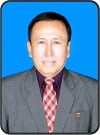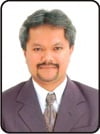The Curriculum Implementation for Cross-Cultural and Global Citizenship Education in Indonesia Schools
Abstract
ABSTRACT: The CCE (Cross-Cultural Education) and GCE (Global Citizenship Education) are two issues now newly attracting attention with the focus on universal human rights and global issues. If the first is a process of education by which individuals and groups can learn to internalize the facts of cultural pluralism to bring about a society that recognizes cultural diversity; while the later is about educating the qualifications, qualities, rights, and responsibilities of global citizens. Many efforts have been made by MoEC (Ministry of Education and Culture) of the Republic of Indonesia to reform the education system and redesign system of curriculum. One of hot issue is concerning with cross culture and global citizenship that can be implemented in primary school as well as secondary school curriculum, as it is one of the requirements in implementing the SDGs (Sustainable Development Goals). The paper, by using the qualitative method and explanation descriptively, discussed some topics concerning CCE and GCE. They are: (1) informing policies and programs lead by MoEC of the Republic of Indonesia in redesigning of new curriculum that give more spaces for increasing the CCE and GCE; (2) identifying general trends as well as indigenous aspects in supporting and enriching teaching-learning activities related to cross-cultural and global education for heterogeneous students; (3) presenting best practices created by schools in developing school culture and global citizenship that empowering students from diverse races, religions, ethnics, and cultural groups; and (4) identifying schools efforts in developing cross-cultural and global citizenship curriculum as meaningful learning experience for students.
KEY WORDS: Cross-Cultural Education; Global Citizenship Education; Curriculum Development; Education Sustainable Development; Indonesia Schools.


About the Authors: Prof. Dr. Dinn Wahyudin is a Lecturer at the Faculty of Education UPI (Indonesia University of Education), Jalan Dr. Setiabudhi No.229 Bandung 40154, West Java, Indonesia. Andi Suwirta, M.Hum. is a Lecturer at the Faculty of Social Studies Education UPI in Bandung, West Java, Indonesia. For academic interests, the authors can be contacted via their e-mails at: dinn_wahyudin@upi.edu and suciandi@upi.edu
Suggested Citation: Wahyudin, Dinn & Andi Suwirta. (2017). “The Curriculum Implementation for Cross-Cultural and Global Citizenship Education in Indonesia Schools” in EDUCARE: International Journal for Educational Studies, Volume 10(1), August, pp.11-22. Bandung, Indonesia: Minda Masagi Press owned by ASPENSI, ISSN 1979-7877.
Article Timeline: Accepted (March 2, 2017); Revised (June 1, 2017); and Published (August 30, 2017).
Keywords
Full Text:
PDFReferences
Barletta, N. (2009). “Intercultural Competence: Another Challenge” in PROFILE: Issues in Teachers’ Professional Development, Volume 11(1), pp.143-158.
Boyer, J.B. (2010). Transforming the Curriculum for Multicultural Understandings. San Francisco: Caddo Gap Press.
Boyer, J.B. & H.P. Babtiste. (1996). Transforming the Curriculum for Multicultural Understandings: A Pracititioner’s Handbook. California: Caddo Gap Press.
Bruner, Jerome S. (1996). The Culture of Education. Cambridge, MA: Harvard University Press.
Choi, I. (2010). “Emerging Roles of Korean Schools in Foreign Countries in the Global Society: Toward the Global Identify and Multicultural Education from Korean Language Education (Korean)” in Journal of Korean-American Education, Volume 27, pp.21-30.
Creswell, J.W. (1998). Qualitative Inquiry and Research Design: Choosing among Five Traditions. Thousand Oaks, CA: Sage.
Denzin, N.K. & Y.S. Lincoln [eds]. (2000). Handbook of Qualitative Research. Newberry Park, CA: Sage, 2nd edition.
Depdiknas RI [Departemen Pendidikan Nasional Republik Indonesia]. (2003). Undang-Undang Nomor 20 Tahun 2003 tentang Sistem Pendidikan Nasional. Jakarta: Depdiknas RI.
Dewey, John. (2009). Democracy and Education: An Introduction to the Philosophy of Education. New York: WLC Books [original work published in 1916].
Dharma, A. (2008). “Indonesian Basic Education Curriculum: Current Content and Reform”. Available online at: www.vnseameo.org/downloads/malay/indonesia.doc [accessed in Bandung, Indonesia: September 29, 2016].
Diaz, L.C. (2017). “Citizenship Education and the EFL Standards: A Critical Reflection” in PROFILE: Issues in Teachers’ Professional Development, pp.155-168. Available online also at: https://revistas.unal.edu.co/index.php/profile/article/view/55676/58150 [accessed in Bandung, Indonesia: July 15, 2017].
Echols, John M. & Hassan Shadily. (2003). Kamus Indonesia — Inggris: An Indonesian — English Dictionary. Jakarta: PT Gramedua, 9th edition.
Elliott, R. & L. Timulak. (2005). “Descriptive and Interpretive Approaches to Qualitative Research”. Available online at: http://nideffer.net/classes/GCT_RPI_S14/readings/interpretive.pdf [accessed in Bandung, Indonesia: July 15, 2017].
Falak, S. (2014). “The Changing of Curriculum from 2006 to 2013”. Available online at: http://bdksemarang.kemenag.go.id/the-changing-of-curriculum-from-2006-to-2013/ [accessed in Bandung, Indonesia: September 29, 2016].
Filho, W.L. et al. (2007). Higher Education and the Challenge of Sustainability: Problems, Promise, and Good Practice. Germany: Environmental Education Center of Soufli. Available online also at: http://www.academia.edu/976102/Education_for_Sustainable_Development [accessed in Bandung, Indonesia: March 2, 2017].
Firman, H. & B. Tola. (2008). “The Future of Schooling in Indonesia” in Journal of International Cooperation in Education, 11(1), pp.71-84.
Friend, T. (2003). Indonesian Destinies. USA [United States of America]: Harvard University Press.
Gaylord, W.A. (2008). “Reformasi and Teachers’ Implementation on Civic Education in West Sumatra, Indonesia”. Unpublished Ph.D. Dissertation. Indiana: Faculty of Graduate School at the Indiana University USA [United States of America]. Available online also at: www.ProQuest.Database [accessed in Bandung, Indonesia: July 27, 2016].
Grossman, D.L., W.O. Lee & K.J. Kennedy [eds]. (2008). Citizenship Curriculum in Asia and the Pacific. Hong Kong: Springer.
Hamalik, O. (1993). Model-model Pengembangan Kurikulum. Bandung: PPs IKIP [Program Pascasarjana, Institut Keguruan dan Ilmu Pendidikan] Bandung.
Heater, D. (2004). Citizenship: The Civic Ideal in World History, Politics, and Education. Manchester: University Press.
Johnson, L. (2010). “Towards a Framework for Global Citizenship Education”. Available online at: http://citeseerx.ist.psu.edu/viewdoc/download?doi=10.1.1.461.9297&rep [accessed in Bandung, Indonesia: March 2, 2017].
Juandanilsyah. (2015). “Indonesian National Curriculum and Global Citizenship Education” in KICE [Korea Institute for Curriculum and Evaluation] [ed]. Global Citizenship Education in Korea and ASEAN: Here, Now, and Into the Future. Seoul: Korea Institute for Curriculum and Evaluation.
Kemendikbud RI [Kementerian Pendidikan dan Kebudayaan Republik Indonesia]. (2013). Kurikulum 2013. Jakarta: Puskurbuk [Pusat Kurikulum dan Perbukuan] Kemendikbud RI.
Kerber, L.K. (1997). “The Meanings of Citizenship” in The Journal of American History, Volume 84(3), pp.833-854. Available online also at: https:/doi.org/10.2307/2953082 [accessed in Bandung, Indonesia: March 2, 2017].
KICE [Korea Institute for Curriculum and Evaluation]. (2015a). Comparative Study on Global Citizenship between Korea and ASEAN: Research Report CRE 2015. Seoul: Korea Institute for Curriculum and Evaluation.
KICE [Korea Institute for Curriculum and Evaluation] [ed]. (2015b). Global Citizenship Education in Korea and ASEAN: Here, Now, and Into the Future. Seoul: Korea Institute for Curriculum and Evaluation.
Lewin, K. (1985). “Quality in Question: A New Agenda for Curriculum Reform in Developing Countries” in Comparative Education, 21(2), pp.117-133.
Madya, S. (2010). “Curriculum Innovations in Indonesia and the Strategies to Implement Them”. Available online at: file:///C:/Users/acer/Downloads/Asia [accessed in Bandung, Indonesia: November 10, 2016].
Marble, S., S. Finley & C. Ferguson. (2000). Understanding Teachers' Perspectives on Teaching and Learning. Austin: SEDL [Southwest Educational Development Laboratory]. Available online also at: http://www.sedl.org/pubs/teaching07/UnderstandTeachersPerspectives.pdf [accessed in Bandung, Indonesia: March 2, 2017].
Mulyasa, E. (2006). Kurikulum Berbasis Kompetensi: Konsep, Karakteristik, dan Implementasi. Bandung: PT Remaja Rosdakarya.
Nishimura, S. (1995). “The Development of Pancasila Moral Education in Indonesia” in Southeast Asian Studies, Vol.33, No.3 [December]. Available online also at: https://kyoto-seas.org/pdf/33/3/330302.pdf [accessed in Bandung, Indonesia: January 15, 2017].
Oxfam. (2006). “Education for Global Citizenship: A Guide for Schools”. Available online at: http://www.oxfam.org.uk/education/global-citizenship/global-citizenship-guides [accessed in Bandung, Indonesia: March 2, 2017].
Power, L. & J. Cohen. (2015). “Competency-Based Education and Training Delivery: Status, Analysis and Recommendations”. Available online at: http://datatopics.worldbank.org/hnp/files/edstats/IDNdprep05.pdf [accessed in Bandung, Indonesia: September 29, 2016].
Ramsey, P.G., L.R. Williams & E.B. Vold. (2003). Multicultural Education: A Source Book. New York and London: Routledge Falmer, second edition. Available online also at: https://www.scribd.com/document/352943052/Multicultural-Education-pdf [accessed in Bandung, Indonesia: March 2, 2017].
Saputri, M. (2014). “History of Curriculum Development in Indonesia”. Available online at: http://putriiymawar.blogspot.co.id/2014/07/history-of-curriculum-development-in_7006.html [accessed in Bandung, Indonesia: September 29, 2016].
Sato, Y. (2003). “Deomocratizing Indonesia: Reformasi Period in Historical Perspective”. IDE Research Paper, No.1 [August]. Available online also at: http://www.ide.go.jp/English/Publish/Download/Papers/pdf/01_01.pdf [accessed in Bandung, Indonesia: September 29, 2016].
Schulz, W. et al. (2010). ICCS 2009 International Report: Civic Knowledge, Attitudes, and Engagement among Lower Secondary School Students in 38 Countries. Amsterdam: IEA [International Association for the Evaluation of Educational Achievement] Publication.
SEAMEO [South East Asian Ministers of Education Organization]. (2017). Guidebook to Education Systems and Reforms in Southeast Asia and China. Bangkok, Thailand: SEAMEO Secretariat. Available online also at: http://www.seameo.org/SEAMEOWeb2/images/stories/Publications/Centers_Pub [accessed in Bandung, Indonesia: July 3, 2017].
Suparno, P. (2017). “Pluralistic and Multicultural Education in the Indonesian Schools” in IJIET: International Journal of Indonesian Education and Teaching, Vol.1(1), January. Available online also at: file:///C:/Users/acer/Downloads/328-838-1-PB.pdf [accessed in Bandung, Indonesia: January 15, 2017].
Sutisna, A. (2011). Sejarah Perkembangan Kurikulum. Bandung: PPs UPI [Program Pascasarjana, Universitas Pendidikan Indonesia].
Takaya, Keiichi. (2008). “Jerome Bruner’s Theory of Education: From Early Bruner to Later Bruner” in Interchange, Vol.39/1, pp.1-19. Available online also at: http://ocw.metu.edu.tr/pluginfile.php/8931/mod_resource/content/1/7su.pdf [accessed in Bandung, Indonesia: August 15, 2016].
Tawil, S. (2013). “Education for ‘Global Citizenship’: A Framework for Discussion” in ERF Working Papers Series, Volume 7, pp.1-8.
Taylor, J.G. (2003). Indonesia: Peoples and Histories. New Haven and London: Yale University Press.
Thomas, R.M. (1991). “Curriculum Development in Indonesia” in C. Marsh & P. Morris [ed]. Curriculum Development in East Asia. London: The Falmer Press, pp.202-214).
Tucker, M. (1998). “Banks on Multicultural Education”. Available online at: http://www.nea.org/neatoday/9809/banks.html [accessed in Bandung, Indonesia: August 15, 2016].
UNESCO [United Nations Educational, Scientific, and Cultural Organization]. (2014). Global Citizenship Education: Preparing Learners for the Challenges of the 21st Century. Paris, France: UNESCO.
Utomo, E. (2005). “Challenges of Curriculum Reform in the Context of Decentralization: The Response of Teacher to a Competence-Based Curriculum (CBC) and its Implementation in Schools”. Unpublished Ph.D. Dissertation. Pittsburgh: Graduate Faculty of the School of Education at the University of Pittsburgh. Available also at: www.ProQuest.database [accessed in Bandung, Indonesia: September 29, 2016].
Vickers, E. & K. Kumar [eds]. (2015). Constructing Modern Asian Citizenship. London and New York: Routledge. Available online also at: http://www.cacme.net/upload/news/file/20161030/20161030210615_83484.pdf [accessed in Bandung, Indonesia: August 15, 2016].
Wahyudin, Dinn. (2015). Manajemen Kurikulum. Bandung: Penerbit PT Remaja Rosda Karya.
Wahyudin, Dinn. (2016). “Curriculum for Cross-Culture and Global Citizenship Education”. Paper presented in an International Conference on Global Citizenship Education, in Chungnam National University in South Korea, on 15-20 November.
Wirianto, D. (2014). “Perspektif Historis Transformasi Kurikulum di Indonesia” in Islamic Studies Journal, 2(1), pp.134-147.
Yeom, M., C. Acedo & E. Utomo. (2002). “The Reform of Secondary Education in Indonesia during 1990s: Basic Education Expansion and Quality Improvement through Curriculum Decentralization” in Asia Pacific Education Review, 3(1), pp.56-68.
EDUCARE: International Journal for Educational Studies. Ciptaan disebarluaskan di bawah Lisensi Creative Commons Atribusi-BerbagiSerupa 4.0 Internasional
